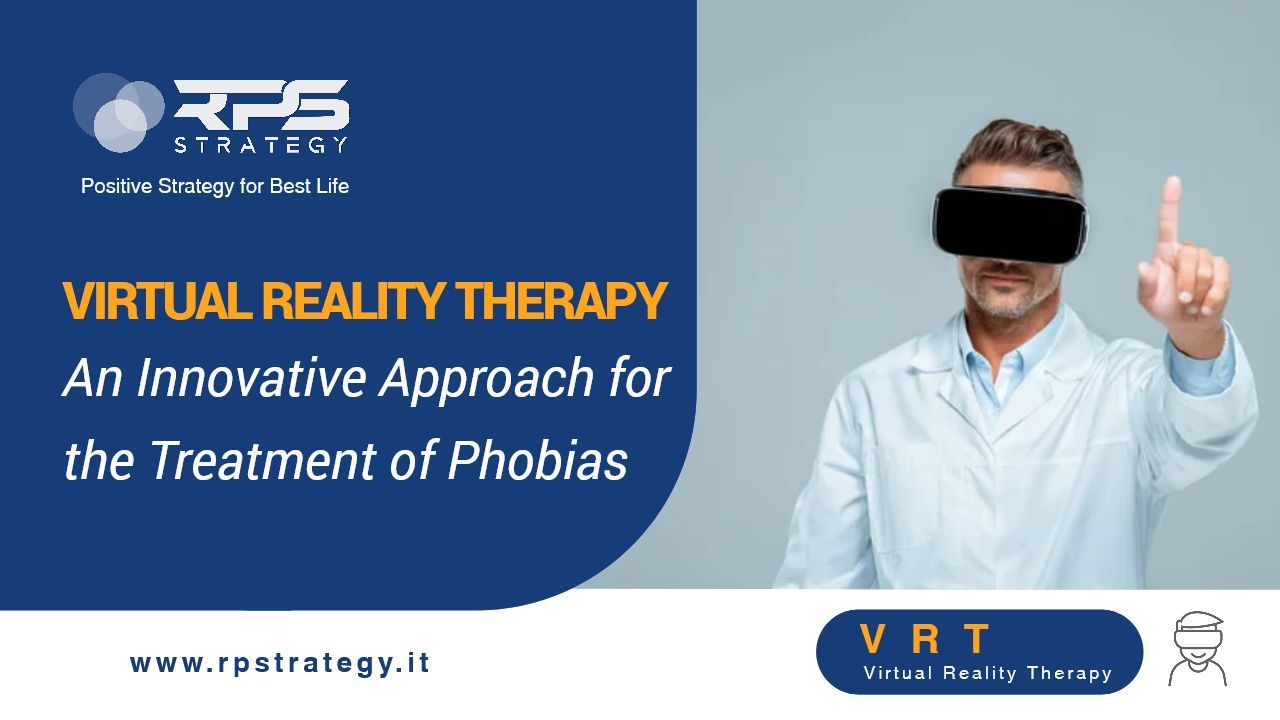VRT: An Innovative Approach for the Treatment of Phobias
Virtual Reality Therapy (VRT) has emerged as a promising and innovative approach for the treatment of various phobias. This article aims to provide a comprehensive review of the use of VRT in the management and cure of phobias, focusing on specific phobias such as claustrophobia, fear of driving, acrophobia, fear of flying, and spider phobia. The effectiveness of VRT in reducing anxiety and providing lasting therapeutic benefits is discussed, along with its advantages over traditional exposure therapy methods. Furthermore, the potential mechanisms underlying the efficacy of VRT are explored. Overall, this article highlights the potential of VRT as a valuable tool in the field of phobia treatment.

What is a specific phobia?
Specific phobias are a common anxiety disorder characterized by an intense and excessive fear of specific objects, situations, or activities. Understanding the multifaceted nature of specific phobia etiology can aid in the development of more effective prevention and intervention strategies. Specific phobias are a prevalent mental health condition that can significantly impact an individual's quality of life. Despite their high prevalence, the precise causes of specific phobias are not fully understood. This article delves into the various factors that contribute to the development of specific phobias, highlighting the importance of studying their etiology for effective prevention and treatment. Traditional exposure therapy, which involves gradual exposure to a feared stimulus, has been a widely used treatment approach. However, Virtual Reality Therapy (VRT) has gained considerable attention as a promising alternative method due to its ability to create realistic and immersive simulations of feared situations. Virtual Reality Therapy has been extensively studied and applied in the treatment of various specific phobias. Research has demonstrated its efficacy in treating claustrophobia, fear of driving, acrophobia, fear of flying, and spider phobia. By utilizing virtual reality technology, individuals can experience realistic simulations of their phobic triggers in a safe and controlled environment, allowing for repeated exposure and the opportunity to develop adaptive coping mechanisms.
Advantages of VRT Virtual Reality Therapy
Studies have consistently reported positive outcomes with VRT interventions. Virtual reality
exposure therapy
has shown significant reductions in
phobic symptoms, anxiety levels, and avoidance behaviors across various phobias. Moreover, VRT has been found to provide lasting therapeutic benefits
and improve overall quality of life for individuals suffering from phobias.VRT offers several advantages over
traditional exposure therapy
methods. Firstly, it provides a controlled and safe environment for exposure, eliminating potential
risks associated with real-life exposure. This feature is particularly beneficial for fear of flying, as individuals can undergo exposure without the need for actual travel. Additionally, VRT allows for
customization of exposure scenarios, enabling therapists to adapt treatment to individual needs and gradually increase the level of difficulty.
The efficacy of VRT can be attributed to several mechanisms. Firstly, virtual reality simulations
trigger emotional responses similar to
real-life experiences, activating the same fear circuits in the brain. This facilitates the process of unlearning fear responses and reconditioning the brain's response to phobic stimuli. Secondly, VRT provides a
sense of presence and immersion, enhancing the engagement and focus of the individual during exposure sessions, thereby optimizing the therapeutic experience.
Virtual Reality Therapy (VRT) represents a valuable and innovative approach in the treatment of various phobias. Its ability to create realistic and immersive simulations of phobic triggers in a safe and controlled environment offers numerous advantages over traditional exposure therapy methods. The effectiveness of VRT in reducing anxiety and providing lasting therapeutic benefits has been demonstrated across multiple studies. With ongoing advancements in virtual reality technology, VRT holds great promise as a powerful tool for the management and cure of phobias. Further research is needed to explore its long-term efficacy, cost-effectiveness, and potential applications in other mental health conditions.
Conclusion
Virtual Reality Therapy
(VRT) represents a valuable and
innovative approach
in the treatment of various phobias. Its ability to create realistic and immersive simulations of
phobic triggers in a safe and controlled environment offers numerous advantages over
traditional exposure therapy methods. The effectiveness of VRT in reducing anxiety and providing lasting therapeutic benefits has been demonstrated across multiple studies. With ongoing advancements in
virtual reality technology, VRT holds great promise as a powerful tool for the management and
cure of phobias. Further research is needed to explore its long-term efficacy, cost-effectiveness, and potential applications in other mental
health conditions
Dott.Igor Graziato
Psicologo del Lavoro e delle organizzazioni
Specialista in Psicoterapia
Esperto di VRT (Virtual Reality Therapy)
Master in Cognitive Behavioural Hypnotherapy
Ipnosi Clinica Evidence Based
Membro dell'American Psychological Association
Past Vice President Ordine degli Psicologi del Piemonte
Bibliography
Desideri maggiori informazioni?
Inviando una richiesta si dichiara di aver letto il disclaimer sulla privacy e si autorizza lo studio RPStrategy© ad elaborare una risposta.
